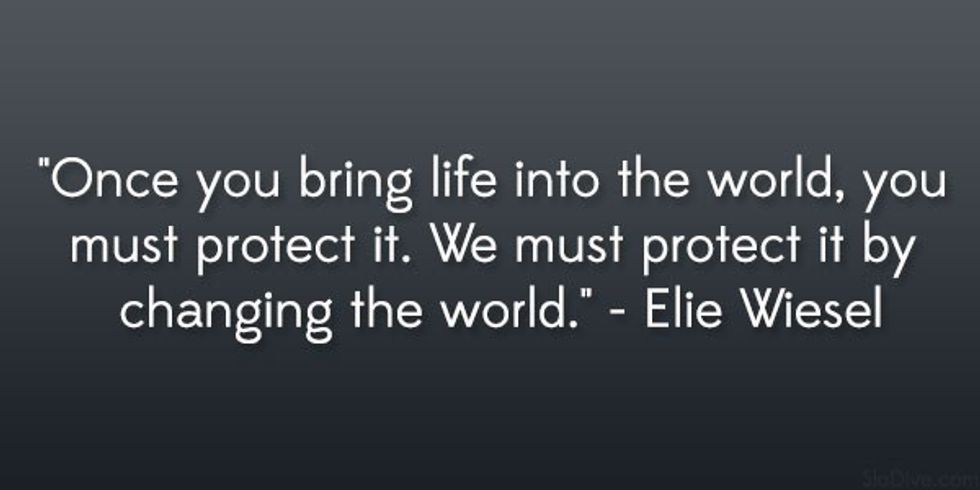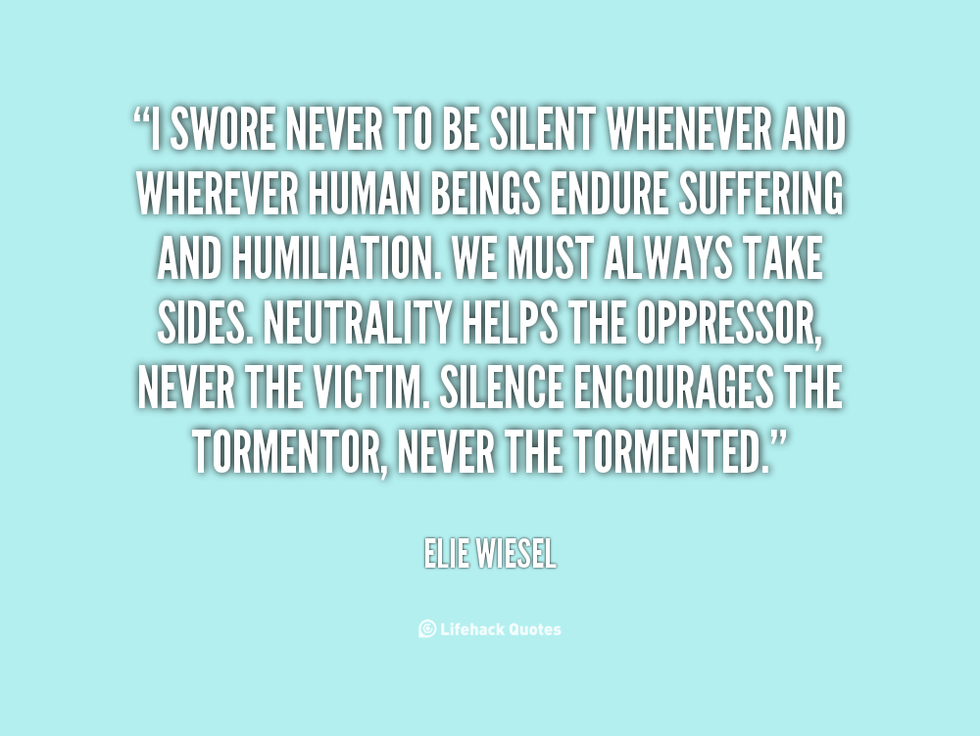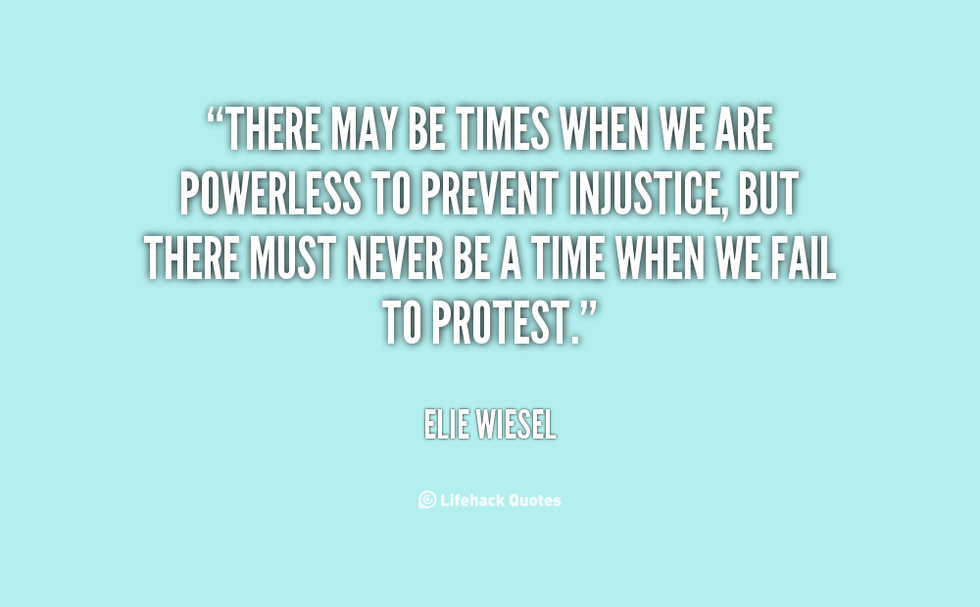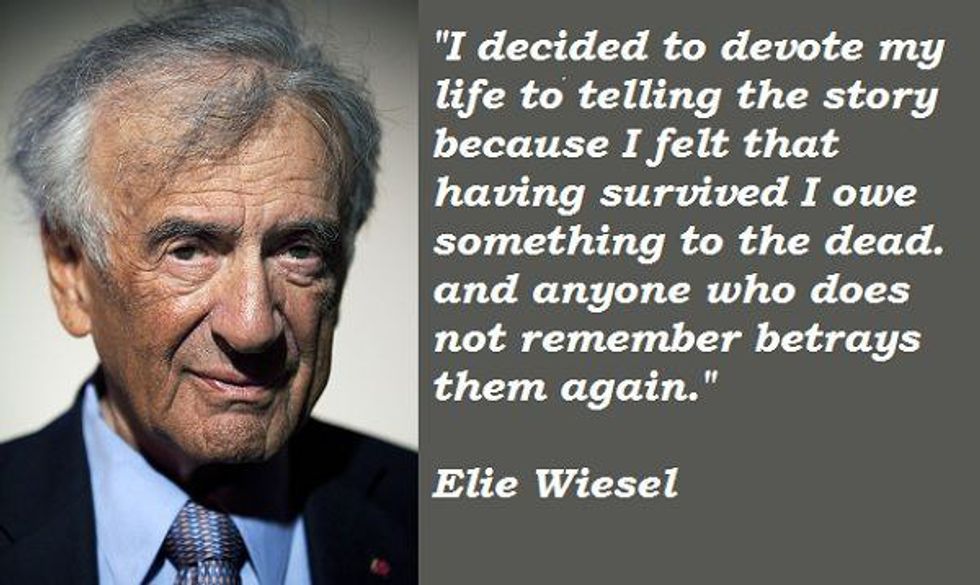Many of you may be unfamiliar with Elie Wiesel, who he was and what he contributed to humanity. Elie had the gift of words. A gift that he used to fight against injustice and persecution.
Wiesel, who passed away July 2, 2016, was a Holocaust survivor who wrote countless novels about a time in our history that many would rather forget. However, the Holocaust is not a forgettable event. We cannot simply erase it from our lives. Elie Wiesel’s death brought much sorrow because this man was consistently shedding light on the issues of racism, violence, and genocide. Walk with me through a remembrance of his beautiful life and how we can apply his words to us today.
At 15 years old, Wiesel was sent to the Auschwitz concentration camp by the German government. Auschwitz, the largest of all of the concentration camps, was actually a death camp. Most of the people sent there were sent to die in the gas chambers. These gas chambers are where Elie’s mother and youngest sister lost their lives. Elie and his father were transferred to the Buchenwald concentration camp where his father later died. In his book, "Night," Wiesel speaks of the shame and embarrassment at hearing his father endure beatings and torture and not be able to save him.
After being freed from the camp in 1945, Wiesel moved to Paris and studied literature. He later moved to the United States, where he wrote many books, such as "Night," "The Trial of God," and his two volumes of memoirs, titled "All Rivers Run to the Sea" and "And the Sea is Never Full." Wiesel played a huge role in the building of the United States Holocaust Memorial Museum, located in Washington D.C. In his honor, the museum gives The Elie Wiesel Award to people who stand against genocide and hatred.
Wiesel received many awards for his work fighting the mistreatment of human beings. Among these awards are the National Humanities Medal, an honorary knighthood in the United Kingdom, the Star of Romania, the Presidential Medal of Freedom, and the Nobel Peace Prize. Wiesel was an outstanding man who stood for the rights of all human beings, regardless of race, religion, or class. As a victim of such a horrific historical event, Elie Wiesel became an example of justice. And in this time it is important that we remember who he was and what he stood for.
We are seeing more violence and hate crimes than many of us feel we have ever seen before. From mass shootings to bombings to planes being flown through buildings, our world is filled with hatred, racism, and deadly violence. In Europe in the 1930s and 1940s, the Jews, Romani people, homosexuals, and countless other groups of people faced persecution like they had never experienced. They were captured and killed for their faith, their way of life, their beliefs, or simply their genes. They faced beatings, humiliation, medical experiments, intense labor, and malnutrition, and so, so many faced death.
I write this article today not to say that we are facing another event like the mass purposeful extermination of 6 million people. Instead I write to say that Elie Wiesel, a victim of this heinous cruelty, grew up to fight for humanity. We must also fight for humanity. With his death, in the absence of such a strong spokesman for justice, we must be that voice. We must stand up for the Christians overseas who are being slaughtered by ISIS, for the homosexuals in America who were shot and killed by people who cannot love, for the genocide taking place in Syria and Iraq, we must be their voice.
I urge you today to think on these Elie Wiesel quotes and to remember those who have fallen due to ignorance and hatred. I encourage you to keep speaking the truth about what happened during the Holocaust, as many people now will try to silence you. And finally, I plead with you to be the voice of love and justice that Elie Wiesel was.

























